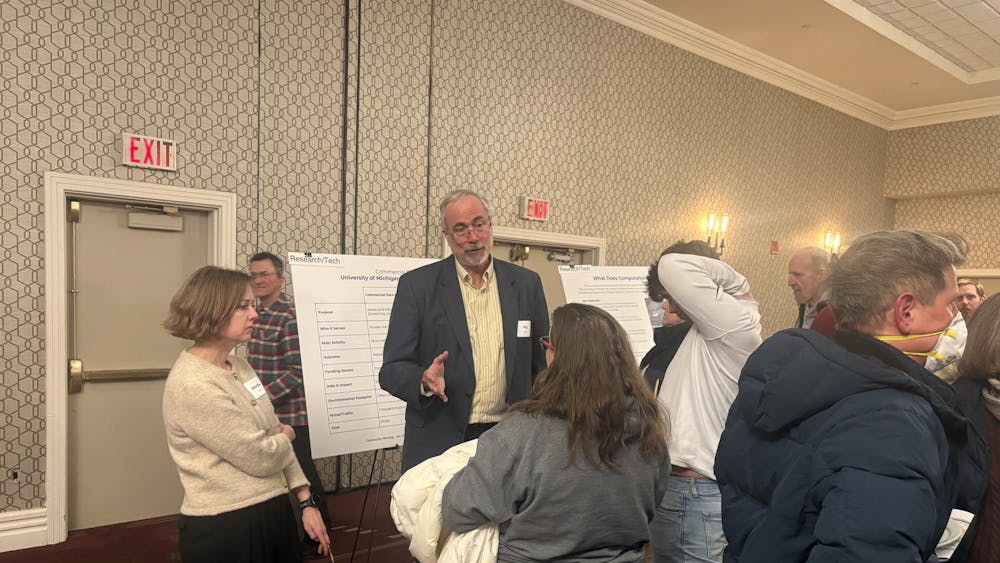Imagine, if you will, a world where college football and men’s basketball players are paid $25,000 a year. In that same world, imagine boosters who, instead of providing athletes cars or money, donate money into a fund, which would help to pay the athletes. New York Times op-ed columnist Joe Nocera already has.
Nocera came to Eastern Michigan University on Tuesday and presented his salary cap plan, which also includes reducing college football scholarships from 85 to 60 and taking away 12 men’s college basketball scholarships as well.
Approximately 200 people filled the EMU Student Center Auditorium to hear Nocera speak.
“I think it was a good, solid turnout with active participation,” EMU Executive Director of Media Relations Geoff Larcom said. “I think that Joe Nocera has very contemporary and provocative ideas on college sports, which is a huge topic to all of us. We’re all big fans, but how can the model sustain itself? He has very interesting ideas on the way big-time colleges ought to operate. Particularly interesting is his idea of the salary cap for the major schools.”
“I think the overall turnout was stupendous,” Student Body President Matthew Norfleet said.
Absent from Nocera’s plan are sports such as baseball, track and field, swimming and wrestling. Also dubiously absent from his plan are any women’s sports whatsoever.
Nocera explained why.
“[Once they are paid,] football and [men’s] basketball players will then be classified as ‘employees,’” Nocera said after the talk. “Title IX will cover the rest, treating the other athletes the same.”
Nocera also said women’s basketball may well be in the realm of paying its athletes, but doesn’t think that will likely happen for another 20 years.
There were three key points Nocera mentioned in his talk.
First, he said the NCAA needs to allow its athletes due process.
He mentioned some cases, most notably the scandal at the University of Miami (Fla.) where a man convicted of running a Ponzi scheme accused the university’s athletic department of committing rules violations and the NCAA sided with him, even when a great deal of what he said turned out to be false.
The second major point Nocera made was the NCAA has to treat athletes the same way any other student is treated on campus.
Student-athletes in the major sports, Nocera said, aren’t usually allowed to pick their own majors. He said they are usually stuck with interdisciplinary studies.
Finally, Nocera put forth his plan to pay the athletes.
Norfleet thought students at EMU might have positive things to say
about Nocera’s talk.
“I think that it was very, very well received,” Norfleet said.
“What I really took from the talk was that everyone pretty much agreed to the premise that there needs to be reform; there needs to be change.”
Larcom agreed, and provided some added clarity to a question that, when asked, Nocera answered without really giving much of an answer.
“I think it’s interesting because he’s talking about a salary cap for schools who have athletic departments that generate their own income,” Larcom said. “He’s advocating that sports still be played at schools such as EMU, but they, and this is schools like EMU, the whole [Mid-American Conference], switch to a different model, and that’s provocative.”
Norfleet said he wasn’t much of a sports person, but did seem to understand what Nocera was trying to say and that this talk will serve to start some discussion, perhaps even on campus.
“I think it has the potential to spark conversation or meetings about potential change or alteration,” Norfleet said. “But I think overall that Joe Nocera’s comments and his philosophy call not only for important MAC schools like our own, but the Big Ten, the power players, to say we need to investigate … we need to further investigate different alternatives of self-governance.”










